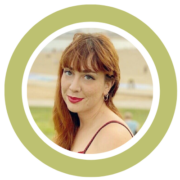Welcome to Dresden, Rachele !
Rachele Catalano has joined the University of Dresden in November 2020 as an Early Stage Researcher. In the framework of the ArtMoMa network, Rachele will dedicate 3 years working on Cooperative effects in biomolecular transport systems based on coupled motors , while participating in international training and network events. Read the following introduction to get to know her:
Tell us more about your background!
I am from Italy and I come from an engineering background. I studied Bioengineering for my Bachelor’s and Photonics Engineering for my Master’s degree at the University of Pavia. I am 25-year-old now, and very eager to do my PhD, join the scientific community and devote all I can to it, in terms of passion, know-how and my desire to learn new things.
Why did you want to be a part of ArtMoMa?
ArtMoMa is an outstanding opportunity to meet and be mentored by exceptional scientists. It also paves the way for exchanging research experiences and new ideas with very motivated and talented students. This can be frightening at first, but I think the willing to commit and be open to constructive criticism and dialogue is the basis for becoming a good researcher. I also joined other programs funded by the EU in the past, such as Erasmus, and I am very supportive of the resources the EU has invested to form its younger citizens and in the scientific, educational and cultural development.
What are your expectations of living and working in your host city?
I am quite excited to live in Dresden, and I already had the opportunity to experience its beautiful summer with plenty of outdoor events. I never considered Germany for my PhD until it actually happened, but I have always wished to move to a city with a river, and the Elbe has completely met my expectations of how wonderful it would have been! I would really like to learn German now and get to know more about the culture. As far as for its scientific community, Dresden has a lot to offer to its students: collaboration between groups is highly encouraged, and even during the pandemic we never lacked the occasion of meeting virtually for conferences and talks.
I can only expect it to become even better when we go back to normality!
What do you think will be your main challenge for you in the next three years?
Undoubtedly, the main challenge would be never losing motivation, even when things don’t immediately go as expected and experiments demand multiple tries before succeeding. I hope a good dose of stubbornness will help with that.



